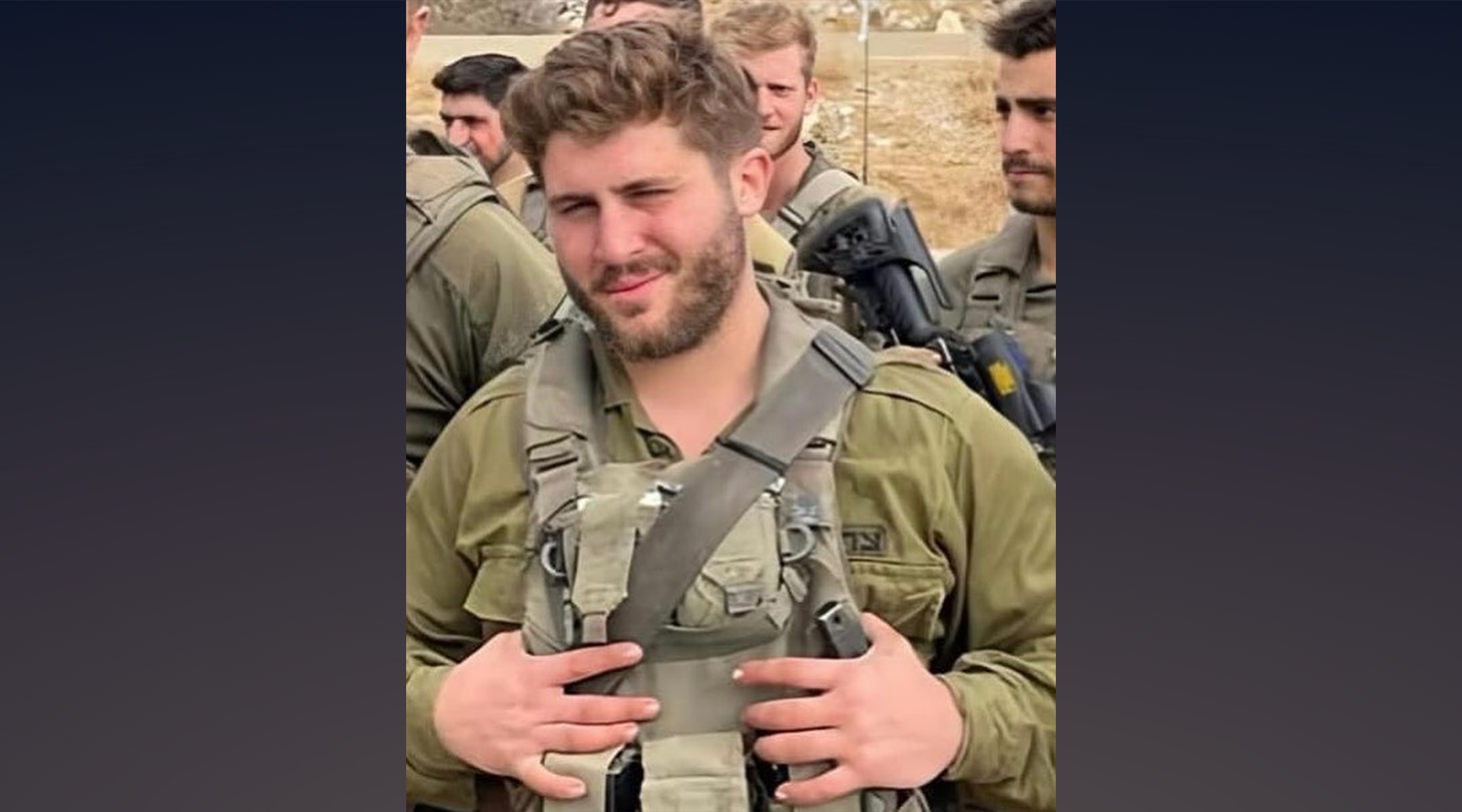Hundreds in Israel mourn American ‘lone soldier’ Jordan Cooper who died after allergic reaction
Cooper, a Pennsylvanian who moved to Israel in 2018, had returned after Oct. 7 and served 200 days in the reserves

Jordan Cooper grew up in Pennsylvani and moved to Israel in 2018. (Via Facebook)
(JTA) — Hundreds of mourners gathered in Rishon Lezion, Israel, Tuesday night for the funeral of Jordan Cooper, 26, an American-born “lone soldier” who had died the day before from a severe allergic reaction.
His parents, Marla Covin Cooper and Ross Cooper, younger brother Ethan and grandfather Jerry were visiting him in Israel when he died, and ahead of his funeral a request went out to the public saying that they were inviting members of the public to “come and accompany him on his final journey so that he won’t be alone in death.”
The request circulated widely, animating Israelis who understood that the threat of war with Iran had vastly constrained how easily friends and family from the United States could travel to Israel.
At his funeral Tuesday night, held after the Jewish mourning day of Tisha B’Av, his father thanked the gathered for answering the family’s call. “This is the reason he came to this country, to protect in ways other than faith,” he said.
Ethan Cooper said that after serving completing his initial service in Israel, his brother joined the war effort in Ukraine as a volunteer. “Jordan is the truest embodiment of selflessness I have ever known,” he said.
Jordan, who was from Garnet Valley, Pennsylvania, attended Camp Ramah in the Poconos for several years, where the camp said he would be “fondly remembered by his camp friends for always having a smile on his face and bringing joy and laughter to those around him.” He moved to Israel in 2018 through the Garin Tzabar program for lone soldiers.
“I have lived my whole life in an area with a very small Jewish population. Growing up in the type of town that I did, I learned very quickly that a Jew can very easily become an outsider,” Cooper told Haaretz in 2018 when he arrived in the country. “My reason for wanting to move to Israel is that I wish to serve in the IDF. I feel it is my responsibility as a Jew to protect future Jewish generations so they can live in their homeland without fear of persecution.”
After completing his service in the Nahal infantry brigade, Cooper returned to the United States where he attended university. He came back to Israel after Oct. 7 as part of the country’s mass mobilization of reservists. His 200 days of reserve duty ended on July 18.
Cooper’s mother is the former chief development officer at the Jewish Federation of Delaware and a recent president of the family’s synagogue, Congregation Beth Shalom in Wilmington, Delaware.
According to accounts shared widely in Israeli media, the family said Cooper’s mother had purchased halva at a market on Monday after receiving assurances by the seller that it did not contain any nuts. After Cooper suffered a severe allergic reaction, he received an epipen injection but later collapsed and died.
The Israeli couple who “adopted” Cooper during his time in the country, in keeping with a tradition for soldiers who have no other family in the country, Shlomo and Patty Asur, told Ynet that after Oct. 7, he had planned to stay in Israel.
“He planned to build a life here, marry his girlfriend and start a family,” said Shlomo Asur. “He rented a house in Rishon LeZion and planned to join the Border Police as a career officer.”
The family is sitting shiva in Tel Aviv before returning to the United States.















